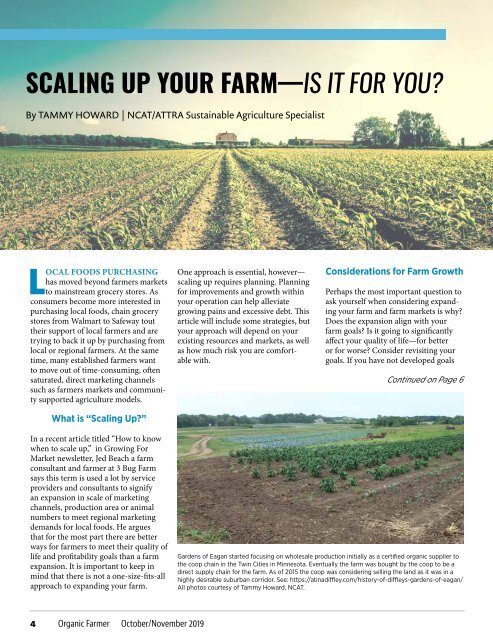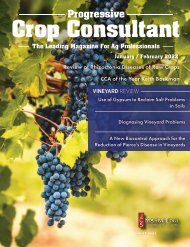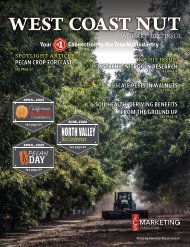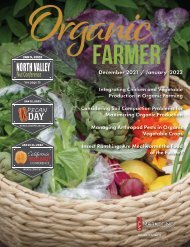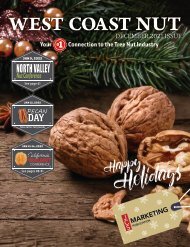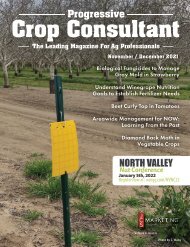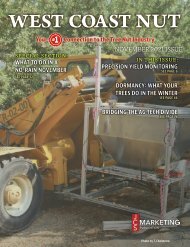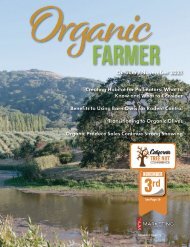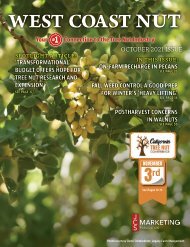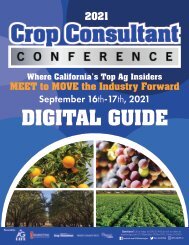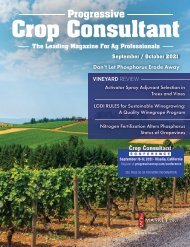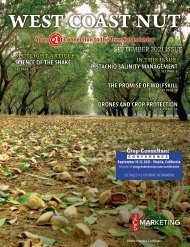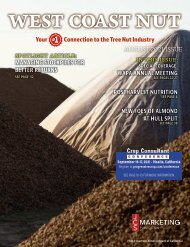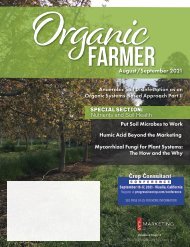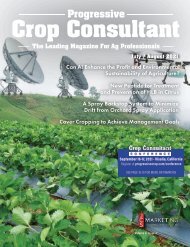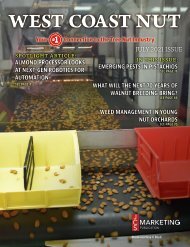Organic Farmer October/November 2019
You also want an ePaper? Increase the reach of your titles
YUMPU automatically turns print PDFs into web optimized ePapers that Google loves.
SCALING UP YOUR FARM—IS IT FOR YOU?<br />
By TAMMY HOWARD | NCAT/ATTRA Sustainable Agriculture Specialist<br />
LOCAL FOODS PURCHASING<br />
has moved beyond farmers markets<br />
to mainstream grocery stores. As<br />
consumers become more interested in<br />
purchasing local foods, chain grocery<br />
stores from Walmart to Safeway tout<br />
their support of local farmers and are<br />
trying to back it up by purchasing from<br />
local or regional farmers. At the same<br />
time, many established farmers want<br />
to move out of time-consuming, often<br />
saturated, direct marketing channels<br />
such as farmers markets and community<br />
supported agriculture models.<br />
What is “Scaling Up?”<br />
One approach is essential, however—<br />
scaling up requires planning. Planning<br />
for improvements and growth within<br />
your operation can help alleviate<br />
growing pains and excessive debt. This<br />
article will include some strategies, but<br />
your approach will depend on your<br />
existing resources and markets, as well<br />
as how much risk you are comfortable<br />
with.<br />
Considerations for Farm Growth<br />
Perhaps the most important question to<br />
ask yourself when considering expanding<br />
your farm and farm markets is why?<br />
Does the expansion align with your<br />
farm goals? Is it going to significantly<br />
affect your quality of life—for better<br />
or for worse? Consider revisiting your<br />
goals. If you have not developed goals<br />
Continued on Page 6<br />
In a recent article titled “How to know<br />
when to scale up,” in Growing For<br />
Market newsletter, Jed Beach a farm<br />
consultant and farmer at 3 Bug Farm<br />
says this term is used a lot by service<br />
providers and consultants to signify<br />
an expansion in scale of marketing<br />
channels, production area or animal<br />
numbers to meet regional marketing<br />
demands for local foods. He argues<br />
that for the most part there are better<br />
ways for farmers to meet their quality of<br />
life and profitability goals than a farm<br />
expansion. It is important to keep in<br />
mind that there is not a one-size-fits-all<br />
approach to expanding your farm.<br />
Gardens of Eagan started focusing on wholesale production initially as a certified organic supplier to<br />
the coop chain in the Twin Cities in Minnesota. Eventually the farm was bought by the coop to be a<br />
direct supply chain for the farm. As of 2015 the coop was considering selling the land as it was in a<br />
highly desirable suburban corridor. See: https://atinadiffley.com/history-of-diffleys-gardens-of-eagan/<br />
All photos courtesy of Tammy Howard, NCAT.<br />
4<br />
<strong>Organic</strong> <strong>Farmer</strong> <strong>October</strong>/<strong>November</strong> <strong>2019</strong>


